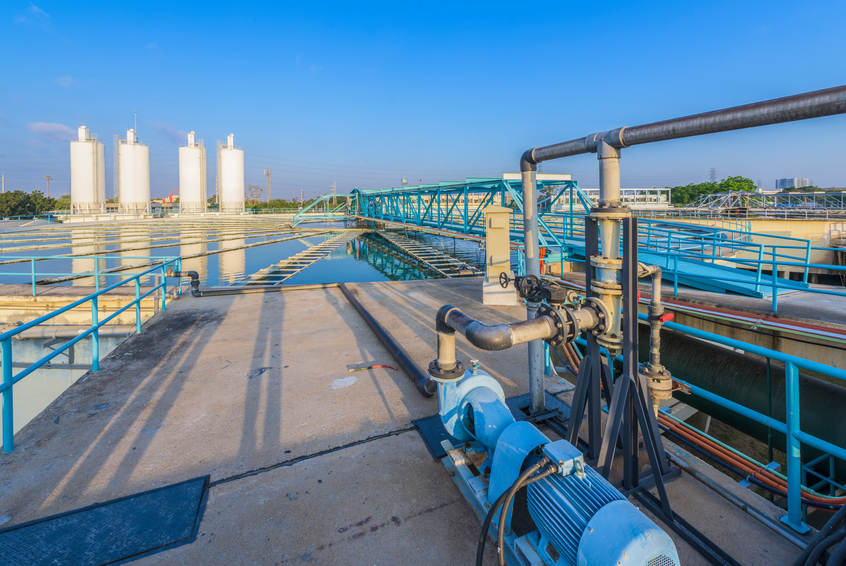Newfoundland and Labrador Industrial & Ethics/Regulatory 30 PDH Discount Package
Improving Process Heating Systems Performance (M05-026)
Planning and Design of Hydroelectric Power Plants (S04-002)
Process Controls for Industrial Facility Systems (D05-001)
Steam Distribution Systems (D02-008)
Steam System Basics and Energy Efficiency (D06-004)
General Principles of Engineering Ethics and Statutes for Newfoundland and Labrador Professional Engineers (NL3-001)

This online engineering PDH course provides a basic understanding of instrumentation and control necessary for safe operation and maintenance of energy facilities and their support systems. In particular, this course describes the principles of construction, operation, and failure modes for various types of detectors including temperature detectors, pressure detectors, level detectors, flow and position indicators.
This 5 PDH online course is applicable to mechanical, industrial and nuclear engineers, construction and design personnel, technical staff and facility operators who are interested in gaining a better understanding of detector applications.
This P.Eng. continuing education course is intended to provide you with the following specific knowledge and skills:
- Learning the different types of equipment detectors and indication circuits
- Understanding the operation of equipment detectors and indication circuits
- Knowing the failure modes of equipment detectors and indication circuits
In this professional engineering CEU course, you need to review Modules 1 through 5 of the Department of Energy Publication DOE-HDBK-1013/1-92, "Instrumentation and Control".
Upon successful completion of the quiz, print your Certificate of Completion instantly. (Note: if you are paying by check or money order, you will be able to print it after we receive your payment.) For your convenience, we will also email it to you. Please note that you can log in to your account at any time to access and print your Certificate of Completion.

This online engineering PDH course describes basic process heating applications and equipment, and outlines opportunities for energy and performance improvements. It also discusses the merits of using a systems approach in identifying and implementing these improvement opportunities for Fuel-Based and Electric-Based heating systems. Furthermore, it provides recommendations to financially justify process heating improvement projects (System Economics).
Process heating is essential in the manufacture of most consumer and industrial products, including those made out of metal, plastic, rubber, carbon fiber, concrete, glass, and ceramics. Process heating systems are broken into three basic categories: Fuel-Based Process Heating, Electric-Based Process Heating, and Steam-Based Process Heating all of which are discussed in details.
This 5 PDH online course is applicable to mechanical, industrial and process engineers, designers, manufacturers and all personnel involved in the planning, design and installation of process heating systems.
This P.Eng. continuing education course is intended to provide you with the following specific knowledge and skills:
- Understanding the basics behind process heating operations
- Familiarizing with the common types of process heating systems and equipment
- Recognizing efficiency opportunities for fuel-based and electric-based heating systems
- Learning how to financially justify process heating improvement projects
Upon successful completion of the quiz, print your Certificate of Completion instantly. (Note: if you are paying by check or money order, you will be able to print it after we receive your payment.) For your convenience, we will also email it to you. Please note that you can log in to your account at any time to access and print your Certificate of Completion.

This online engineering PDH course presents a discussion of the general, architectural and structural considerations applicable to the design of hydroelectric power plant structures. It is intended for guidance on establishing minimum criteria in the planning and design of such structures.
The engineering of hydroelectric projects is a highly specialized filed, particularly the engineering design and operational activities.
This 4 PDH online course is applicable to civil, structural and geotechnical engineers, as well as design and construction personnel involved with the planning and design of hydroelectric power plant structures.
This P.Eng. continuing education course is intended to provide you with the following specific knowledge and skills:
- Location selection criteria of powerhouse and switchyard
- Types of powerhouse structures and type selection criteria
- General arrangement of powerhouse and location of main transformers
- Installation of powerhouse and switchyard equipment
- Interior and exterior architectural design
- Determination of structural requirements
In this professional engineering CEU course, you need to review the US Corps of Engineers Publication EM 1110-2-3001, "Planning and Design of Hydroelectric Power Plant Structures".
Upon successful completion of the quiz, print your Certificate of Completion instantly. (Note: if you are paying by check or money order, you will be able to print it after we receive your payment.) For your convenience, we will also email it to you. Please note that you can log in to your account at any time to access and print your Certificate of Completion.

This online engineering PDH course provides a basic understanding of instrumentation and control necessary for safe operation and maintenance of energy facilities and their support systems. In particular, this course describes the principles of operation for control systems used in evaluating and regulating changing conditions in a process.
This 5 DH online course is applicable to industrial and nuclear engineers, construction and design personnel, technical staff and facility operators who are interested in gaining a better understanding of process controls.
This P.Eng. continuing education course is intended to provide you with the following specific knowledge and skills:
- Principles of control systems
- Control loop diagrams
- Types of control systems
- Controllers
- Valve actuators
In this professional engineering CEU course, you need to review Module 7, "Process Controls" of the Department of Energy Publication DOE-HDBK-1013/2-92, "Instrumentation and Control".
Upon successful completion of the quiz, print your Certificate of Completion instantly. (Note: if you are paying by check or money order, you will be able to print it after we receive your payment.) For your convenience, we will also email it to you. Please note that you can log in to your account at any time to access and print your Certificate of Completion.

This online engineering PDH course provides a basic description of the steam distribution systems along with an overview of the main associated components.
A steam boiler is virtually useless for heating without a good distribution system that transports the steam to the areas that require heating. In this course, the term distribution system refers to the network of piping required to distribute steam from a boiler room (or boiler plant) through the steam pipes to the equipment using the steam. The course discusses both exterior and interior systems, including their maintenance requirements and various associated components.
This 2 PDH online course is applicable to industrial and mechanical engineers as well as technical personnel interested in gaining a better understanding of steam distribution systems.
This P.Eng. continuing education course is intended to provide you with the following specific knowledge and skills:
- Understanding the different types of exterior steam distribution systems
- Familiarizing with the different types of interior steam distribution systems
- Learning the basic components of steam distribution systems as well as their operation and maintenance considerations
Upon successful completion of the quiz, print your Certificate of Completion instantly. (Note: if you are paying by check or money order, you will be able to print it after we receive your payment.) For your convenience, we will also email it to you. Please note that you can log in to your account at any time to access and print your Certificate of Completion.

This online engineering PDH course discusses the basics of steam systems, and provides a comprehensive technical overview of energy efficiency measures in steam generation, distribution, and use.
Steam is in heavy demand in industries requiring heating processes, and typically, it is an energy-intensive process to generate it. Optimizing the steam distribution system focuses on many different areas, with the boiler plant being just a part of the whole process.
Every part of the steam system, including the steam distribution and the end-use process, should perform at the highest efficiency to keep the operating costs to a minimum. The savings potential is enormous not only from a fiscal standpoint, but also from an environmental standpoint.
This 6 PDH online course is applicable to process engineers, energy managers, procurement and maintenance staff, operators, and all industry professionals involved in the design and operation of steam systems.
This P.Eng. continuing education course is intended to provide you with the following specific knowledge and skills:
- Familiarizing with the key components of industrial steam generation, distribution, and use
- Understanding the principles of perfect combustion, excess air, and air-fuel ratio
- Identifying the typical energy losses of boiler/steam systems in facilities
- Learning about low-cost practical strategies to improve the energy efficiency of boiler/steam systems
- Understanding the required measures to reduce stack and blowdown losses
- Learning how to improve the distribution side of the steam system and its end-use efficiency
Upon successful completion of the quiz, print your Certificate of Completion instantly. (Note: if you are paying by check or money order, you will be able to print it after we receive your payment.) For your convenience, we will also email it to you. Please note that you can log in to your account at any time to access and print your Certificate of Completion.

This online engineering PDH ethics course presents the principles of engineering ethics and statutes for Newfoundland and Labrador Professional Engineers.
Engineering ethics is (1) the study of moral issues and decisions confronting individuals and organizations involved in engineering and (2) the study of related questions about moral conduct, character, ideals and relationships of peoples and organizations involved in technological development (Martin and Schinzinger, Ethics in Engineering).
This course will address the principles of engineering ethics that every engineer is expected to live by when practicing their profession. This course also provides an overview of PEGNL’s general statutes and regulatory laws. It will also present unique ethical studies randomly selected to demonstrate ethical challenges for professional engineers and alternatives to address these challenges.
This 3 PDH online course is applicable to Professional Engineers licensed in Newfoundland and Labrador and who are required to demonstrate continuing professional competency in ethical practice and regulatory learning as a condition of their license renewal.
This online course is intended to provide you with the following specific knowledge and skills:
- Understanding the definition of engineering ethics
- Learning about the important principles of the Engineer’s Professional Responsibility
- Gaining a general overview on PEGNL’s procedure of filing an allegation, its resolution by Registrar and its referral to Complaints Authorization Committee (CAC)
- Familiarizing with PEGNL’s general statutes and regulatory laws
- Understanding professional ethical practices through presenting realistic case studies
Upon successful completion of the quiz, print your Certificate of Completion instantly. (Note: if you are paying by check or money order, you will be able to print it after we receive your payment.) For your convenience, we will also email it to you. Please note that you can log in to your account at any time to access and print your Certificate of Completion.